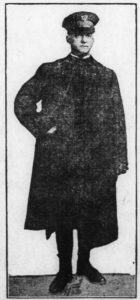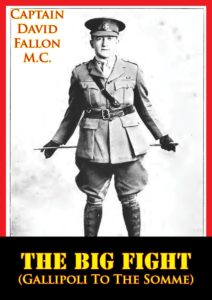School has started and all the summer reading activities with children are over. I now have time to get back to writing my World War I blog. I’ll be starting up by browsing the August, 1918 newspapers, but hope to be able to go back to those summer months I missed at a later date.
At the library this month we are exhibiting a “World War I and America” national traveling exhibit. To go along with it, I created six posters highlighting letters which were written in August, 1918, by six local soldiers to family and friends. I also created a foyer exhibit about the Chautauqua show which performed in a large tent August 24-26, 1918.
Chautauqua was a popular adult education movement in the United States in the late 19th and early 20th centuries. Traveling with a tent like a circus, Chautauqua brought entertainment and culture for the whole community, with speakers, teachers, musicians, entertainers, preachers, and specialists of the day. The one that visited Kinsley and many other Kansas towns one hundred years ago was organized by Redpath-Horner and homebased in Iowa. With the war in progress, this Chautauqua had a very patriotic theme carried out by 13 acts and a play entitled “Liberty Torch” which was acted by local children.
Eye witness accounts of the war were main attractions at this Chautauqua. American soldiers were pouring into Europe, and the people back home were very anxious for news about the war. One main speaker was Lieutenant E. H. Lougher who was billed as coming “direct from France, where he went as a member of the American Red Cross commission…. He comes fresh from actual contact with soul-stirring conditions in Europe, and whose talk will be well worth while.”
The other main speaker was Captain David Fallon, who “went through the entire, terrible Gallipoli campaign. He commanded a tank in an amazing war adventure. He has served as an aerial observer, spotted enemy positions and fought enemy aeroplanes. He has been wounded fifteen times. He was awarded the Military Cross for daring service by his King.”
Of special interest to the women, was Harriet Warren, a WWI Ambulance Nurse, who served in the front line hospitals specializing in plastic surgery. She “has a story of the war from an entirely different viewpoint….It is so thrilling, so tragic, so instructive and so full of facts not generally known….”
The Major Marr Entertainers were also on the bill. Consisting of three WWI disabled Canadian soldiers, they were described as “skilled and experienced in entertaining as well as processing a war record. They come with a new program of songs, stories and sketches, fairly breathing the very atmosphere of the trenches.”
If this does not make you wish you could have attended the 1918 Chautauqua, I’ll tell you about an impersonator, a magician-inventor, and many more entertainers on the bill in my next blog.


